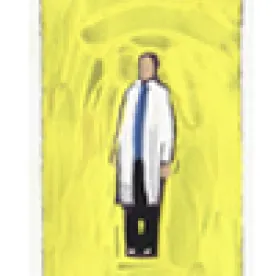On February 10, 2015, the United States Court of Appeals for the Seventh Circuit broadly interpreted the term “referral” in the Anti-Kickback Statute (AKS), in a decision that could have significant implications for health care professionals. The court held that a physician makes a “referral” under the AKS when he or she makes a “certification and recertification” that care is necessary, even though the physician did not steer patients to the particular provider. United States v. Kamal Patel, No. 14-cv-2607 (7th Cir. Feb. 10, 2015)
When patients of Dr. Kamal Patel, an internist in Chicago, needed home health care, Dr. Patel did not discuss with the patients which providers to use. Rather, a member of his staff provided them with 10-20 home health care company brochures, and the patients chose one of those providers on their own. Dr. Patel then “certified” the patient for 60 days of home care – and “recertified” if longer care was needed – by signing a Form 485 (a Medicare form that certifies that care is medically necessary and outlines a patient’s treatment plans) for each patient.
Dr. Patel allegedly accepted $400 in cash per certification and $300 per recertification from Grand Home Health Care (Grand) – one of those 10-20 providers. Based on these facts, the lower court held that Mr. Patel “referred” patients to Grand when “he certified or recertified that the patient needed care, that the care would be provided by Grand, and that Grand could be reimbursed by Medicare for services provided.”
On appeal, Dr. Patel argued that the district court erred in holding that the certification and recertification process constituted a “referral” under the AKS. Instead, he said that to “refer” means to personally recommend a patient use a particular provider. But Dr. Patel did not do that. Instead, his patients chose the provider on their own, without discussing it with Dr. Patel. The government countered that “refer” should include a doctor’s authorization of care, which would include the certification and recertification process. Indeed, on at least one occasion, Dr. Patel withheld certification forms from Grand, until payment was made. And, without those forms, Grand could not bill Medicare for the services it provided to Dr. Patel’s patients.
The court disagreed with Dr. Patel. In reaching its decision, the Seventh Circuit found support in the definition of “referral” under certain state laws, the Stark law, and in the way that Dr. Patel even used the term on one occasion. “Patel is correct that it does not matter who first identifies the care provider; what matters is whether the doctor facilitates or authorizes that choice,” the court stated. “Patel acted as a gatekeeper to federally-reimbursed care. Without his permission, his patients’ independent choices were meaningless.” What mattered to the court was not whether Dr. Patel steered patients to Grand but that Grand could not get paid by Medicare unless Dr. Patel certified the care – something that he did regularly in exchange for cash.
Several courts that have analyzed the issue, including the Seventh Circuit itself in an earlier case, have found that a “referral” depends on whether the doctor actually sent patients to the provider, as Dr. Patel’s appellate brief noted. See United States v. Polin, 194 F.3d 863, 865-67 (7th Cir. 1999) (referring patients to a specific provider violated AKS); United States v. Miles, 360 F.3d 472, 479-80 (5th Cir. 2004) (defendants did not compensate individuals who “select[ed] the particular home health care provider”); United States ex rel. Perales v. St. Margaret’s Hosp., 243 F. Supp. 2d 843, 854 (C.D. Ill. 2003) (situation where physician “played no role in determining which facility a patient would go to” would not contravene AKS).
The Seventh Circuit’s decision is a marked departure from those cases. According to the Patel court, whether a physician steers or directs patients to a particular provider does not matter – the act of authorizing and reauthorizing care is enough. Given that this decision is at odds with these prior interpretations of “referral,” health care professionals should monitor closely whether other circuits adopt the Patel approach and whether any court applies it outside the home health context.




 />i
/>i

